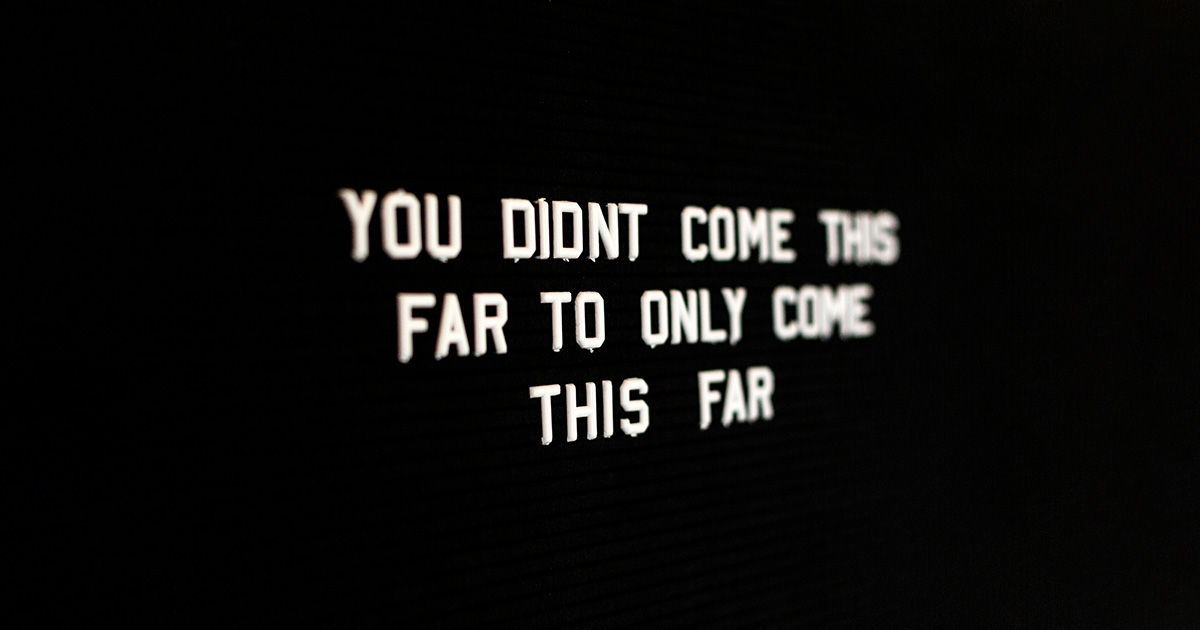What are soft skills? Think of them as things you are — either in-born characteristics or ones you’ve honed through life experience — that make you the type of person that others want on their team.
When employers evaluate you as a job/internship candidate, they consider your soft skills — because these will determine how well you work with others, how reliable you are, and whether you’ll be an asset to the company’s needs.
The good news is that you can learn to master any soft skill — and college is the perfect time to do exactly that. Here are eight soft skills that you can master while attending EFSC:
1. Leadership
Leadership comprises multiple soft skills, including people/resource management, empathy, problem-solving, teamwork, and creativity. When you bring leadership expertise to the table, you’re telling the employer that you have potential for growing with the company — working your way into higher positions with greater responsibilities. This makes it more likely that the employer will take interest and invest in you as an employee.
EFSC provides many opportunities to practice and develop your leadership skills, including:
- Taking the lead or being actively involved in a group project
- Joining a club or SGA in a leadership capacity
- Completing a course in leadership/management or taking honor’s-level courses
- Taking initiative in class to ask questions, present ideas, and assist your peers
2. Communication (Written and Verbal)
Our bodies and mouths are constantly communicating. Every text message and email you send, video or image you post online, gesture you make, and word you say is a form of communication. Businesses — and everything in life, really — rely on communication to succeed. Professional communication means being clear and respectful — and anyone can master this skill.
While you’re attending college, consider enhancing your communication skills by:
- Mastering public presentations in front of the classroom
- Writing clear, error-free, concise emails and messages to teachers
- Managing communications for a club or group project (meetings, schedules, roles, emails, etc.)
- Drafting strong written essays (and getting writing tutoring)
Check out Career Service’s Top 12 Tips for Professional Communication.
3. Critical Thinking and Problem Solving
You don’t have to be a professional detective or researcher to have critical thinking skills. Critical thinking means identifying new or effective ways to solve problems. Employers love this skill because a good solution can save them time, money, and resources. Critical thinkers are proactive, looking for solutions independently rather than always relying on someone else to tell them what to do.
Here are ways you can hone your critical thinking skills in college:
- Join a club or honors society; propose ideas and solutions to existing problems
- During group projects, suggest ways to save the group time in getting the project done
- Investigate new tools for completing projects (such as an alternative to PowerPoint)
- Dedicate 10 minutes a week to nothing but brainstorming college-related ideas (like time-management hacks to get homework done faster)
- Before asking a question, try to come up with at least one solution/idea first
4. Teamwork
Most jobs — even when you’re self-employed — require you to work with others or collaborate with outside organizations and resources. Knowing how to appreciate and understand different perspectives, identify others’ strengths, and resolve conflicts is key to being a successful employee.
During our college experience, hone your teamwork skills by:
- Getting involved with clubs, service-learning, and campus events
- Playing sports and collaborative games
- Taking initiative in group projects to learn and work within others’ strengths and needs
- Visiting the Career Center to take personality assessments and learn about each others’ differences
5. Emotional Intelligence
Emotional Intelligence (or EQ) means understanding others (and yourself) and responding with empathy, compassion, and humanity. Employees with high EQ give constructive feedback, mediate conflicts between people, and motivate others through social skills and self-awareness.
EQ, like every soft skill, doesn’t come naturally to everyone, but there are ways to improve it while at college:
- Visit your campus’ library to read or listen to books about real/fictional people
- Attend on-campus events and challenge yourself to talk to new people
- Join or attend club meetings to learn about others’ unique perspectives and cultures
- View live theatrical performances at the EFSC theatre to experience new perspectives
6. Adaptability
The only certainty in life is change. Whether you work in a fast-paced job in healthcare or a slow-paced desk job, things won’t always go according to plan and your ability to adapt will be crucial. For example, during the COVID pandemic, many employees suddenly had to work from home, learning to quickly adapt to new work environments, regulations, and software programs.
During your time at EFSC, learn to adapt by:
- Renting a quiet study room at the library to practice mindfulness and build your resilience
- Familiarizing yourself with all student resources (so you’ll know who to contact for help)
- Taking Student Life Skills to learn more about yourself and your growth mindset
- Getting involved in clubs, events, and activities for exposure to unique situations
7. Strong Work Ethic
When you hear “work ethic,” you might think of “ethical.” Having a strong work ethic means being honest, responsible, reliable, trustworthy, and disciplined. Others know you mean what you say, and you’re committed to doing what is needed. Employees with a strong work ethic are more likely to be promoted and given greater privileges.
Practicing your work ethic is one of the easiest soft skills habits to hone while in college:
- Ensure you are at least 5 minutes early to every class and meeting
- Deliver your homework on time
- Respond to emails and other messages within 24 hours or as soon as possible
- Avoid complaining; focus on solutions instead
- Take responsibility for your actions and admit when you’re wrong; avoid excuses
8. Digital Literacy
No matter your job, you’ll most likely be using computer technology. Navigating the internet, applications, and software programs quickly and accurately will set you apart from your peers. Most of your courses will involve using your computer to write essays, create PowerPoints, communicate with peers, submit work, or conduct research.
Take advantage of your class and homework time to:
- Master Microsoft Office (most employers will ask you to be familiar with it!)
- Get your typing speed up to at least 45 WPM (Test yourself at typingtest.com)
- Utilize keyboard shortcuts to get more things done in less time
Ready To Hone Your Soft Skills?
For more professional development help, check out Career Services’ variety of on-demand soft skill workshops, including time management, goal-setting, and professional communication.




